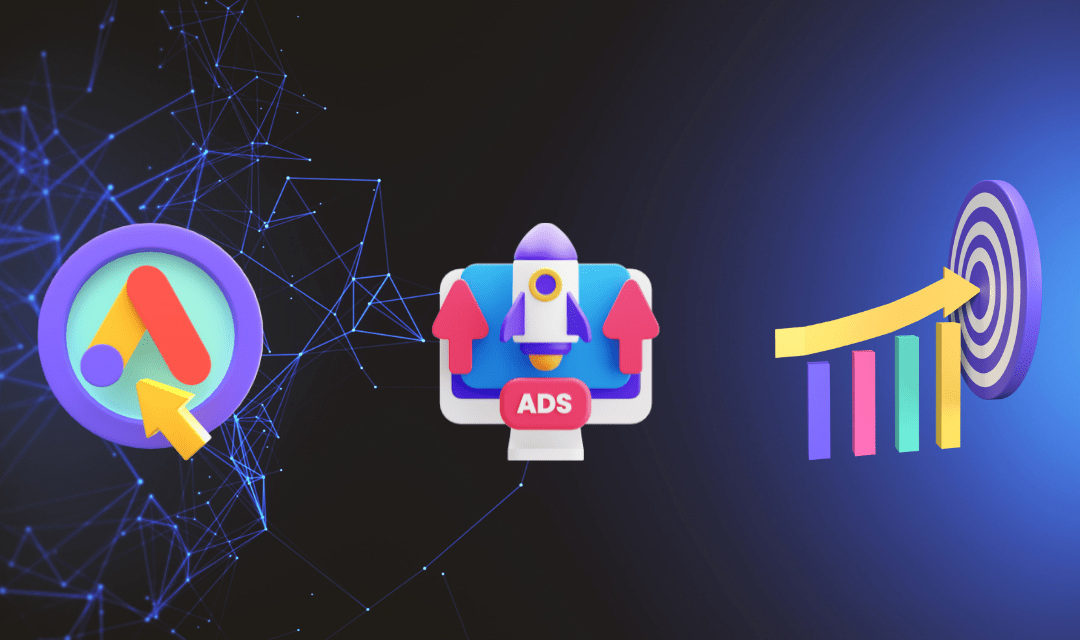website development and digital marketing
Digital Wallets & Mobile Payment Apps Apple PayAvailable on iOS devices, Apple Pay is supported by major UAE banks such as Abu Dhabi Commercial Bank, Emirates NBD, and Dubai Islamic Bank. It allows for secure contactless payments at numerous retailers across the UAE. Samsung PayCompatible with Samsung Galaxy devices, Samsung
What is a Domain in Digital Marketing? In the world of digital marketing, a domain plays a crucial role in establishing a brand’s online presence. Essentially, a domain is the unique address used to access a website on the internet. Think of it like your website’s “home address.” When someone
Google Ads is essential in today’s fast-paced digital world, helping businesses stand out and succeed online. Whether you’re a small business or a larger enterprise, achieving online success relies on smart digital marketing strategies and a well-designed website. Here, web development and tools like WordPress become invaluable. This article will
In today’s digital-first world, having a professional and well-designed website is crucial for any business to succeed. WordPress, being one of the most popular content management systems (CMS), offers businesses the flexibility to create websites that are both functional and beautiful. However, not every business owner has the time, skills,
FAQ
Website development involves creating and maintaining a website, including tasks like coding, designing, and optimizing its performance. Digital marketing, on the other hand, focuses on promoting a business, brand, or product through online channels such as search engines, social media, email, and content marketing.
A well-designed and optimized website enhances user experience, loading speed, and mobile responsiveness, which are key factors for SEO (Search Engine Optimization) and conversion rates. A strong website forms the foundation for digital marketing campaigns, allowing for better user engagement and increased online visibility.
The time required for website development varies based on the complexity of the site, the number of pages, and specific features needed (like e-commerce, blogs, etc.). On average, a standard business website may take 4-8 weeks. For a digital marketing-friendly website with optimized performance, SEO, and mobile responsiveness, the timeline could extend depending on customization.
Yes, having a website is essential for establishing an online presence, but digital marketing is equally crucial for driving traffic to your site. Website development ensures you have a functional and professional-looking platform, while digital marketing strategies like SEO, social media marketing, and PPC (Pay-Per-Click) help attract visitors and convert them into customers.
To combine website development and digital marketing effectively:
- Ensure your website is mobile-friendly and fast.
- Implement SEO from the ground up, including keyword optimization and meta tags.
- Integrate social media links and share buttons.
- Use Google Analytics or similar tools to track performance.
- Create engaging content that aligns with your digital marketing campaigns to enhance lead generation and conversion rates.
Search Engine Optimization (SEO) is essential in both website development and digital marketing. During website development, SEO best practices such as optimizing page speed, creating clean code, using relevant keywords, and ensuring mobile responsiveness are crucial for improving visibility on search engines. In digital marketing, SEO involves creating keyword-rich content, link building, and improving site rankings to drive organic traffic, which enhances your online presence.
With the rise in mobile device usage, having a mobile-responsive website is vital for both website development and digital marketing success. A responsive design ensures your website works seamlessly across all devices, providing a good user experience and improving SEO rankings. Since mobile traffic now constitutes a significant portion of web visits, a site that is not mobile-friendly can lose potential customers and hinder the effectiveness of digital marketing campaigns.
Digital marketing strategies like SEO, social media marketing, content marketing, and paid ads (PPC) help drive traffic to your newly developed website. By creating optimized content, promoting it across social channels, and running targeted ad campaigns, you can increase visibility and attract your ideal audience, leading to higher engagement and potential conversions.
Yes, integrating e-commerce into your website is highly effective when paired with digital marketing strategies. By incorporating tools like Google Shopping, social media ads, and email marketing, you can promote your products, increase traffic to your e-commerce store, and drive sales. Additionally, website development ensures smooth functionality of your e-commerce platform, providing a seamless shopping experience for customers.
A well-developed website enhances user experience (UX), site performance, and overall design, all of which directly influence the success of digital marketing efforts. A functional, fast, and visually appealing website can lead to higher conversion rates, lower bounce rates, and more effective marketing campaigns. This ultimately increases the Return on Investment (ROI) for digital marketing efforts by ensuring that users who visit the site are more likely to stay, engage, and convert.
After completing website development, the top digital marketing strategies to focus on include:
- Search Engine Optimization (SEO) for improving organic rankings.
- Pay-Per-Click (PPC) advertising to drive targeted traffic quickly.
- Social media marketing to build engagement and promote content.
- Email marketing for lead nurturing and customer retention.
- Content marketing to provide value and establish authority in your industry. These strategies work in conjunction to increase brand awareness and conversions.
Regular updates to your website are important to keep up with evolving digital marketing trends, user preferences, and SEO best practices. At a minimum, you should update content, improve performance (like page speed), and make design tweaks every few months. Frequent content updates, such as blog posts or product listings, can improve SEO and keep users engaged, which aligns with the goals of ongoing digital marketing efforts.
These FAQs dive deeper into the interconnected nature of website development and digital marketing, addressing the importance of user experience, SEO, and ongoing strategies to enhance online visibility and growth.

In today’s digital landscape, having a robust online presence is crucial for any business aiming to thrive and outshine competitors. Whether you’re a small startup or an established company, investing in website development and digital marketing can unlock new opportunities, enhance brand visibility, and foster meaningful engagement with your target audience. When these two elements are strategically combined, they can drive substantial growth and lead to long-term success. Let’s explore how website development and digital marketing work in tandem to build a powerful online presence.
Website development involves designing, building, and maintaining a website that represents your brand’s identity while acting as a central hub for all online activities. A well-developed website is not merely a digital brochure; it’s an interactive platform that attracts visitors, delivers valuable content, and converts leads into customers. It serves as a gateway for users to learn about your products or services, contact you, and even make purchases.
The design of your website is critical for creating a positive first impression. A visually appealing, user-friendly design encourages visitors to stay on your site longer and explore your offerings. Key elements of good design include a clean layout, intuitive navigation, and responsive design, ensuring the site works seamlessly across all devices, especially mobile. These features are essential for enhancing the overall user experience (UX).
Website performance, particularly speed, is another vital factor. Slow-loading websites frustrate users and increase bounce rates, leading to lost opportunities. Optimizing your website for speed not only improves user satisfaction but also boosts your search engine optimization (SEO) efforts by increasing your chances of ranking higher in search results.
Functionality is also a core aspect of website development. Whether your site includes an e-commerce platform, a blog, a contact form, or a booking system, all features must work seamlessly. Effective website development ensures your site is functional, interactive, and glitch-free, providing a flawless experience for users.
In an era where businesses are increasingly moving online, website security is paramount. A secure website protects both your data and the personal information of your visitors. Implementing security measures such as SSL certificates, encryption, and regular updates not only guards against cyber threats but also builds customer trust.
Once your website is live, it’s time to attract visitors and grow brand awareness through digital marketing. Digital marketing encompasses a wide range of strategies, including SEO, social media marketing, email marketing, and content marketing, all of which leverage online channels to reach your target audience, engage them, and convert them into loyal customers.
In conclusion, website development and digital marketing are indispensable for a successful online strategy. Together, they form the foundation for business growth, customer engagement, and long-term success in an ever-changing digital landscape. By investing in both website development and digital marketing, you’re setting your business up for success in today’s competitive online marketplace.


